Lenovo, LG have a 'me too' moment, also tell Ellen they have better smartphone cameras than Samsung

Ellen DeGeneres' Samsung Galaxy Note 3 made waves at the Academy Awards after being used to snap an on-stage selfie and a group shot. Both quickly became hugely popular photos taken at the event, and target practice for the South Korean maker's rivals.
Nokia was first to take a stab at Samsung for the terrible quality of DeGeneres' selfie, implying she should have used one of its smartphones instead. The photo posted by the star even had the #blurry hashtag added on Twitter to make up for what was basically a missed shot. Not to miss this opportunity (to be unoriginal), Lenovo and LG also took to Twitter to convince us that their smartphones would have fared better than Samsung's phablet.
Nokia wants apps for its X lineup to have an Android look and feel
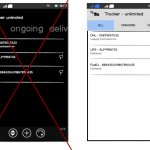
When Nokia officially unveiled its X smartphones it was clear the Finnish company intended its new Android lineup to look similar to Lumia Windows Phones. The internals may be on the low-end side, but the hardware design looks just as premium, undoubtedly aided by the funky colors, and the software... well, the homescreen interface resembles the Windows Phone tiles, which is the dead giveaway as far as this writer can tell.
Some may rightfully point out that X smartphones are superior to Lumias in one major area -- apps. Courtesy of the mature Android ecosystem, Nokia's droids are compatible with hundreds of thousands of offerings, which is more than Windows Phone can tout. It would make sense for Nokia to encourage developers to make their apps more like those on Windows Phone to warm repeat customers to the idea of upgrading to one of its higher-end smartphones, which run Microsoft's tiled operating system. But, Nokia has other plans.
Twitter, you had me going for a while

Every day, right after I wake up, I check my email accounts to see who reached out during the night. This morning it was Twitter that grabbed my attention with an email informing me that my password has been reset.
The reason? "Twitter believes that your account may have been compromised by a website or service not associated with Twitter", says the email received from the social network. "We've reset your password to prevent others from accessing your account". This is not something that one wants to hear, is it?
Nokia subtly mocks Samsung for blurry Oscars selfie

Samsung's Galaxy Note 3 was the tech star of this year's Academy Awards, as the phablet was used by both Bradley Cooper and Ellen DeGeneres to snap two of the most popular pics at the event. Ironically, both photos are blurry (and, might I add, appear to be part of heavily staged acts).
Quick to take advantage of the free publicity, arch rival Nokia has subtly taken a stab at Samsung for the terrible quality of one of the photos, namely DeGeneres' selfie on the stage.
Tablet vendors should focus more on hybrids

The tablet market is showing strong, continuous growth year-over-year. Research firm Gartner today announces that slate sales in 2013 increased by 68 percent compared to the year before. Android takes the market share crown after more than doubling its sales, iOS came second and Windows follows in third place.
Of the three, iOS was the only platform that did not post tremendous year-over-year growth. Android increased its sales, and lead over Apple's iPads, to 120.96 million units in 2013, up from the 53.34 million units sold in 2012. Meanwhile, Windows grew to 4 million units, which is, again, considerably higher than in the previous year when sales topped 1.16 million units. In contrast, iPad sales came in at 70.4 million units, marginally more than the 61.45 million units sold in the year before.
What we know about Windows Phone 8.1 so far
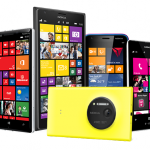
In late-October 2012 Microsoft released Windows Phone 8. Today, it is still the latest available iteration, more than a year after its arrival. Some would say its feature set was outdated when it launched, more so now as both rivals, Android and iOS, have been improved multiple times since, pushing them further ahead of Microsoft's own competitor.
Windows Phone 8.1 is Microsoft's chance to finally catch up to Android and iOS in the feature department, and, for the first time, give its offering a tangible advantage over its more popular adversaries. Windows Phone 8.1 appears to be long overdue when we consider that Android and iOS see one or two major updates each year, and their feature sets are really cutting edge. We know Microsoft revealed that its new smartphone operating system will launch this spring, so let us take a look at what it is known to bring to the table.
Kitsch alert! Alchaemy reveals 24kt gold Apple Mac Pro
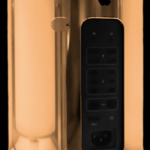
It looks like every company that desperately wants to be in the spotlight -- or win some kitsch award -- is trying to do it by unveiling something in gold. Well, congrats, Alchaemy, you most definitely are the latest winner.
The company took the wraps off a 24 karat gold Mac Pro, that is part of its Shyne series. As if Apple's new powerhouse is not expensive enough, starting at $2,999, be prepared to spend an additional $1597.99 (because, probably $1600 sounded too expensive) to customize it in this trim. Some would say the Mac Pro looks like a trash can. Well, thanks to Alchaemy, you can now make it look like a gold trash can.
Windows Phone will still be in Android and iPhone's shadow four years from now

Even though Windows Phone is definitely making inroads and is considered to be the fastest-growing smartphone operating system, in 2013 its market share came in at less than 4 percent, according to research firms IDC and Strategy Analytics. Consumers are (still) much in love with Android smartphones and iPhones, giving Windows Phone too little attention.
In its latest smartphone market forecast, IDC claims that Windows Phone will still lurk in the shadows four years from now, as its market share in 2018 is estimated to climb to just seven percent. Shipments of devices running the tiled mobile OS are expected to reach 121.8 million units, which would be a huge improvement over the roughly 35 million units in 2013, but still not nearly enough to catch up to Apple's iPhones or Android smartphones, which shipments IDC estimates will reach 249.6 and 1,321.1 million units, respectively.
Samsung Galaxy S5 off to a good start, T-Mobile reveals record pre-registrations
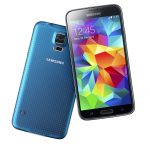
The Galaxy S5 is Samsung's latest Android flagship, launching in April in 150 countries across the globe. Even though we are more than a month away from the official release, some mobile operators are already giving prospective buyers the option to register their interest in the new smartphone.
US mobile operator T-Mobile is among them. Its landing page for the Galaxy S5 gives folks the possibility to be among the first to find out "all the amazing details" on Samsung's new device, and, each day, the chance to win a Galaxy S5 with the S-View Flip Cover. The prize definitely adds to the appeal of filling those boxes, with T-Mobile announcing record pre-registrations.
Plan to buy Samsung's Galaxy S5? Get a microSD card too (or the 32 GB model)

The amount of storage that is advertised in a product's specifications sheet never matches the user-available capacity when software is preinstalled on the device. That is to be expected, but there comes a point when customers may be getting too little space to store some content and install a few apps. With just a couple of games, that are growing in size nowadays, there might be nothing left available.
That is what upcoming Galaxy S5 buyers will have to deal with, as the preinstalled software on Samsung's new flagship takes up more than half of the advertised storage on the 16 GB model. Yes, that is roughly 8 GB occupied out-of-the-box.
Samsung details Galaxy S5's new octa-core processor (Yes, there is one)
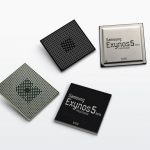
In keeping up with tradition, there will be two processors available in the Samsung Galaxy S5. The international version gets Qualcomm's quad-core Snapdragon 801, while another model -- that will most likely be available in non-LTE markets -- ships with the company's own octa-core Exynos chip, that Samsung just unveiled at MWC 2014.
Samsung is increasingly reliant on Qualcomm processors for its flagship Android devices, like the Galaxy S4, Galaxy Note 3 and, most recently, Galaxy S5, as the Exynos chips that arrived in 2013 have failed to live up to expectations. Even though those were octa-core designs, the Qualcomm-made, quad-core, solutions performed similarly and came with a very competent LTE modem as well. Samsung is not giving up (yet), as the new Exynos 5422 still aims to turn the tables in the company's favor.
Hey BYOD, Samsung's new Knox is here
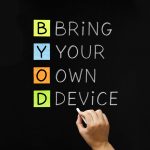
BYOD is in full swing, but most businesses are not prepared for it. In order to maintain a high level of security, companies that embrace the movement, or want to, have to change, or adapt, their existing policies to accommodate the wave of devices their employees are bringing in, which is not what 55 percent of them are doing, according to a study issued last week.
Samsung is among the few mobile devices manufacturers to take an active role in ensuring its products are BYOD-ready and enabled straight off the bat. Its response to the movement is Knox, a solution the company released one year ago, to augment the Samsung for Enterprise program. And, now, the successor arrives to beef up Knox even further.
Kaspersky launches a 'safe' Windows Phone browser

Due to its low market share, Windows Phone is not a popular target for malware writers, which gives users a sense of security. Whether that is genuine or false it remains to be seen, but, for the time being, the platform can be considered devoid of any malware.
Like iOS, Windows Phone limits what users, and apps, can do to increase security, which is also one of the reasons why malware is not running rampant. This is achieved through a number of dedicated features, like sandboxing. However, the operating system cannot keep users from visiting the darker corners of the InterWebs, or keep them safe from potential risks while doing so. Russian security company Kaspersky has decided to take matters into its own hands, and help those who navigate to suspicious or unsafe websites, by launching Safe Browser.
BlackBerry proves it's still kicking, announces Z3, Q20 smartphones
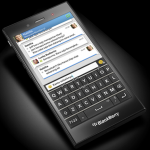
BlackBerry has carefully chosen the second day of the MWC conference to announce two new smartphones that run BB 10 OS, namely the full-touch Z3 and QWERTY-equipped Q20. Smart choice. After all, the big players have already showcased their latest products, which gives the Canadian company the chance to be put center-stage today.
Neither the Z3 nor the Q20 are meant as replacements for the currently-available Z10, Z30, Q5 or Q10, which BlackBerry introduced last year. The new devices are instead aimed at emerging markets and the core BlackBerry audience, respectively.
ASUS announces two Fonepad 7 Android tablets, with cellular connectivity on board
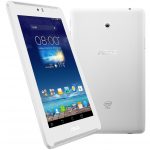
Tech companies are taking advantage of the MWC conference, held in Barcelona, to showcase their latest products. So far, we covered the announcements of Nokia's X Android smartphone series, Sony's Xperia Z2 smartphone and slate, and a couple of 64-bit mobile processors, that are aimed at Android devices, from Intel and Qualcomm.
ASUS is also among the many companies present at MWC 2014. Today, the Taiwanese maker announces two new Fonepad 7 tablets, adding to the number of Android devices that were just unveiled at the conference.
Mihăiță's Bio
Mihăiță Bamburic is the resident staff writer, reporting technology news from Europe. He focuses on mobile computing, covering the latest smartphones, tablets, laptops and apps. He also frequently writes editorials, analyzing companies and products that have a deep impact on consumer-facing technology.
Ethics Statement© 1998-2025 BetaNews, Inc. All Rights Reserved. Privacy Policy - Cookie Policy.
